PICTURE ABOVE: A Cover-All structure Brit Pfann erected on the farm several years ago provides quiet shelter for animals and keeps hay and equipment out of the elements. “And there are no dark spots in the corners where a sick animal can hide,” he says.
Brit and Fleming Pfann built their lives through their creativity. Brit designed naval ships and civil-defense communications systems during his engineering career, and Fleming spent 30 years as a textile artist.
But after moving back to North Carolina from Florida, they gave up the world of work to be their own bosses. The Pfanns now run The Inn at Celebrity Dairy, a small goat dairy and bed-and-breakfast on 300 acres in Silk Hope, N.C.
Married for 31 years, the Pfanns say running a small farm and business takes a lot of time and dedication, and a lot of equipment.
The Pfanns don’t spend a lot of money on new equipment, but they rely on accessible dealers in their area to get the parts and service necessary to keep their equipment running. These relationships illustrate how dealers can win business from more conservative customers by focusing on convenience and personal attention.
“We have a couple of great dealers here,” says Brit Fleming, his voice echoing through the rafters of The Inn’s 1,000 square-foot great room. “Our dealers are small family businesses, but they’re here. They may not have the parts I need, but they can still order them and get them for me.”
A Business Slowly Evolves
The Inn at Celebrity Dairy got its start 23 years ago after Brit and Fleming moved to North Carolina and purchased an old farm that hadn’t been worked for a quarter century.
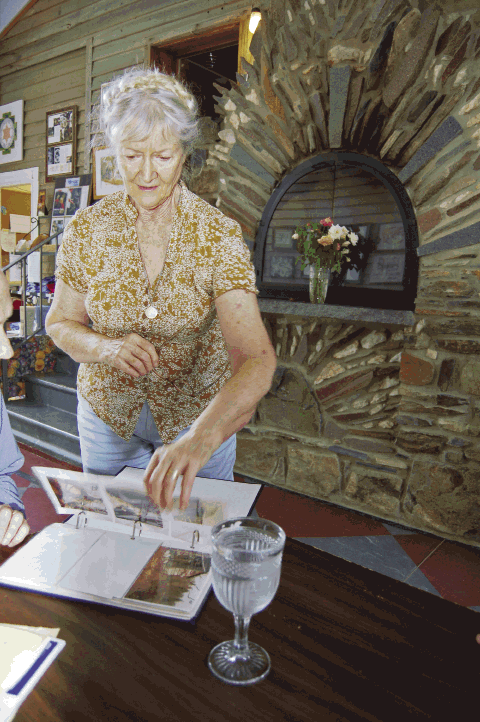

Meet the Rural Lifestylers: Brit and Fleming Pfann
Business: The Inn at Celebrity Dairy
Location: Silk Hope, N.C.
Property: 300 acres, 40 fenced; Milking parlor, Cover-All structure, animal barn, hay barn, and 6,000-s
Equipment: Bobcat S205 skid-steer; Massey Ferguson 245 tractor; Gravely zero-turn mower; BEFCO tiller; E-Z-Go golf cart, Bush Hog SQ720 rotary cutter; Danuser fence-post driver and wood splitter; Stihl Farm Boss chain saw; Stihl trimmer; New Holland box spreader; Leimbeck blade and post auger
Fleming spent 30 years as a textile artist. “It went out of fashion when we were over here and she started on goat cheese. The medium changed, but the aesthetic input didn’t,” Brit says.
Brit’s background is in naval architecture and aeronautical engineering, and he worked briefly in computer communications before turning to farming. “The engineering income did an awful lot for getting this place started,” he says. “Anybody that does farming needs somebody in the family with a day job.
“Nine years ago, I was just too busy out here to keep working. I said ‘Hey guys, time to do another layoff list, I’m too busy to come to work.’ ”
After their arrival, the Pfanns bought some goats to keep down the brush on their land. But before the animals were delivered — and after helping some neighbors milk their goat herd — the couple decided to try goat farming themselves.
The goats produced more milk than two people could drink, so they went to the library to read up on cheese making. Soon, the kitchen was full of gallon-glass jars containing “marvelous biology experiments,” Brit says.
Eventually the Pfanns decided to make goat cheese commercially. Fleming and Brit traveled all the way to Chino, Ariz., to buy a dairy processing plant. “Nobody intends to get into goats — it’s always an accident,” she remembers being told by the equipment seller, Wesley Thielke, who ran a goat dairy for 40 years.
State inspectors helped the Pfanns design a building around the equipment that conformed to sanitation rules, and by 1991, with a herd of 18 goats, the Pfanns were officially licensed.
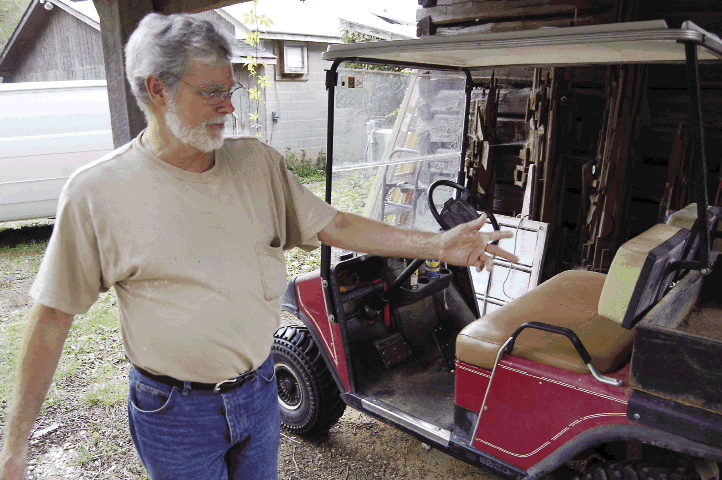
An E-Z-Go golf cart, used to haul around feed bags and supplies for fence repairs, is one of many tools Brit Pfann uses to maintain The Inn at Celebrity Dairy, a combination goat dairy and bed and breakfast.
Brit had an engineering assignment that year in Paris and was adopted by a French goat farmer who showed him the ropes on small-scale farming and goat cheese making.
The Pfanns currently have 60-80 goats that produce the milk for cheese, 200 chickens that roam 40 fenced acres, and a few llamas to protect the livestock.
The goat cheese made at Celebrity Dairy — which has won awards at national competitions — is sold to local restaurants, farmer’s markets and gourmet food stores in the Raleigh-Durham-Chapel Hill metro areas.
The 6,000 square-foot inn, opened 14 years ago, plays host to weddings, reunions and dining events that draw as many as 200 people. The 6 bedrooms are booked by a mix of locals looking for a not-so-distant vacation, neighbors needing bedroom space for visiting family members, or tourists interested in goat cheese and small farming.
“I think the inn was an idea for families, particularly ours, to have a place to get together and assemble,” Brit says. “We had already started the dairy. It seemed like a good idea at the time.”
The property has some other interesting features, including the settler’s original 1800 log cabin, a large smokehouse from the 1800s and Brit’s “chicken tractor,” an old church bus that serves as a shelter for chickens and egg boxes.
About 75% of the couple’s business income is from the inn, which is important because income from the dairy products tends to be linear. Brit admits running it is more work than he anticipated. “But the inn does what we ask of it. We’re getting more weddings, and it’s becoming more and more an event center. We hadn’t thought about that when we did it.”
Brit and Fleming find their entrepreneurial lives are very fulfilling, despite the pressure and paperwork involved in running a small business. The inn and dairy depends on their daily presence and diligence, which is an especially big departure for Brit. As an engineer, he’s worked on years-long projects with dozens of colleagues.
With their current jobs, “You see the result of your efforts, good or bad, fairly quickly,” Brit says. “I’ve learned new skills, learned about people, and learned about equipment. I didn’t have training on all that, but if you do it long enough, you learn.”
Task-Oriented Equipment
While Fleming works on making and marketing goat cheese, Brit is handling most of the day-to-day operations with the inn and the livestock. He faces a routine of milking goats, hauling hay, alfalfa and feed around the property, mowing and road grading.
Caring for livestock is a labor-intensive business. The goats must be milked every 12 hours, which means the Pfanns must use the remaining balance of their time to get chores done efficiently.
Brit has equipment for nearly every job, but much of it is older. He’s not prone to ego-driven decisions on purchases, but as he grows older he’s beginning to understand how the right equipment can make his chores easier.
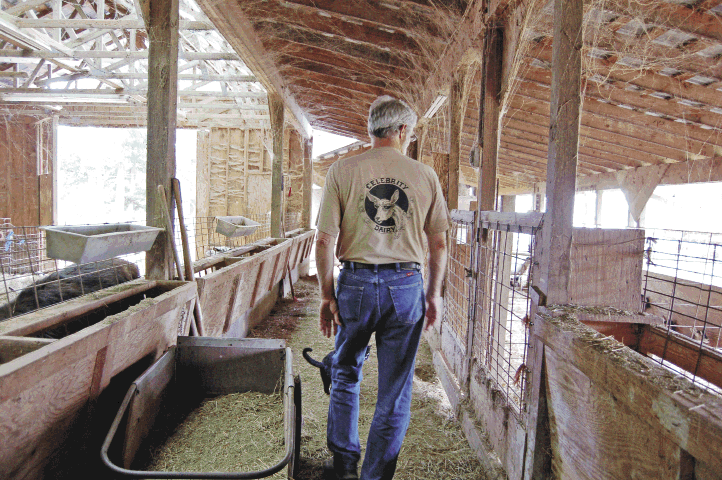
Brit Pfann uses a Bobcat S205 skid-steer to clean out goat pens in the barn, as well as unloading hay bales and landscaping chores. He doesn’t turn on the skid-steer every day, “but if I have to move a bale from the barn to where I break it up for the animals, I can move it and park it there,” he says.
Five years ago, the Pfanns shelled out $23,000 for a Bobcat S205 skid-steer. Brit got the machine for $11,000 below the list price after a salesperson at the dealership he was visiting mentioned a year-end sale coming up. After expressing interest, Brit was later told the machine had an $1,100 Bob-Tach quick-attach system on it. He didn’t want to pay the entire amount for the feature, so the salesman cut the price for it in half to seal the deal.
The Bob-Tach feature allows Brit to quickly change out the skid-steer’s loader for a forklift, bucket, bale spears and other attachments without getting out of the machine. Even though Brit showed reluctance at paying for the feature, the salesman’s accommodation won him over and ensured some positive word of mouth. “Looking back on it, it’s worth the full price,” Brit says. “I wouldn’t buy another machine without it.”
Accumulating 50-60 hours a year, the skid-steer is used to unload hay bales, especially the 1-ton bales of special alfalfa that arrives by truck from New Mexico. It’s also a handy machine for landscaping chores, moving mulch and cleaning out goat pens.
Sometimes Brit wishes he’d bought the skid-steer a long time ago. “At some point you can’t lift 50-pound hay bales any more. I don’t turn it on every day, but if I have to move a bale from the barn to where I break it up for the animals, I can move it and park it there. It’s precise, it’s strong, and it isn’t worn out yet. It’s really worked out well.”
Brit uses an older 40-horsepower Massey Ferguson 245 tractor and a Bush Hog SQ720 rotary cutter he bought a few years ago for handling rough-cut jobs on the property. He mows the pastures twice a year to get the seed heads down and eliminate pigweed.
He’ll add a Leimbeck scraper to the tractor to maintain the roads (which he does very frequently), and an older Danuser fence-post driver to install and repair fencing that surrounds about 40 acres. The tractor only accumulates about 50 hours a year on average.
After using a John Deere lawn tractor for many years, Brit bought a used Gravely zero-turn mower to cut grass on 5-10 acres surrounding the inn.
“If I couldn’t mow the grass before a wedding, I’d be calling someone to come here and get it done, which we’ve had to do once in a while. Lawn maintenance is critical. You just have to do it to host events,” he says.
The Pfanns also own a BEFCO tiller to condition the soil in their garden, and an E-Z-Go golf cart used to haul around feed bags and tools and supplies to repair the fences.
They also own an older New Holland box spreader that is utilized in the spring and fall to spread manure. He also has 3 different trailers for various chores, including hauling hay bales from place to place.
An important investment on this small farm is the 40-x-60-foot Cover-All structure that protects hay, animals and equipment from the rain. “It’s quiet. When it rains, there’s no noise from the rain on the roof,” which is good for the animals, Brit says. “And there are no dark spots in the corners where a sick animal can hide.”
When it comes to buying equipment, the Pfanns want versatility and practicality. “We’re doing little bits of things that look like farming,” Brit says, “but we’re not doing a lot of any one thing. We need the equipment for specific things. And as I get older I am more willing to buy equipment, and I have more confidence that I’m not going to buy the wrong thing.”
What Can You Do for Me?
Many farmers in and around Chatham County, where the Pfanns live, admit to being “cussedly independent,” Brit says. But what can’t be forgotten in this tight-knit community is the need for parts and service.
The Pfanns spend anywhere from $5,000 to $10,000 a year on parts and service for their equipment. A dealer that’s willing to hunt down hard-to-find parts has a good chance of getting their business.
Gum Springs Garage, 8 miles away in Pittsboro, sells and services Stihl equipment and works on Brit’s outdoor power equipment. The garage even sold Brit an old box spreader sitting in the weeds so he could replace a gear box on his New Holland spreader.
Dealer Takeaways
• Doing small things for customers, like helping them locate a hard-to-find spare part, earns loyalty.
• Find out how your customers tackle their chores and show them how new equipment can make their lives easier.
• Pay attention to what’s happening on small farms in your region to identify emerging equipment needs.
• Find out which parts-and-service niches aren’t being addressed by dealerships in your territory andfill them.
“They won’t work with anything with a computer on it. They won’t work on my Toyota Prius. But they will work on my tractor,” Brit says, chuckling. “His son is my age, and his father still sits around the shop and chats with people.
“When I go there they’ll cut me a little discount. But I don’t want a big discount. I tell them, ‘I want you to be here when I need parts. If you ‘charge me too little you won’t be here in 3 years.’ I don’t mind saving some money on something, but I need reliability.”
Brit turns to 3 other dealerships for his service and parts work. Two of them are in nearby Siler City, N.C.: Clapp Brothers Tractor, which carries New Holland, Bush Hog, Stihl and other brands; and Black Tractor Co., which sells Massey Ferguson tractors, New Idea spreaders and Sunflower tillage and seeding equipment.
“We do a reasonable amount of service ourselves,” Brit says, “but it doesn’t take too much thinking to call a dealer and say, ‘This is not something I should be doing.’ With the Massey Ferguson tractor I once had dirty fuel in it, and I didn’t have time to strip the fuel system and clean it out. It hadn’t been in the shop for 8 years, so I got it in there and they tuned it up. This went on for 2 weeks, but it’s done.”
Parts availability is deal-breaker for the Pfanns with dealerships. The John Deere lawn mower they once owned had a fuse holder that had gotten hot and melted the plastic. The fuse holder was built into the wiring harness, which Brit found out was discontinued.
“I’m at a stage where I’m going to buy professional-quality equipment. I’m not using it every day like a professional landscaper might, but occasionally I may run equipment hard and I may want a machine like that,” Brit says. “I will need parts and service for a much longer interval because I’m going to hang on to the equipment a long time.” he says.
The Pfanns purchased the skid steer from Piedmont Bobcat in Kernesville, N.C., but they more often get maintenance done at Triangle Bobcat in Morrisville, a city just outside of Raleigh, because it’s more convenient for their travel habits. “I’m going there anyway. It’s not a special trip.”
What Brit appreciates most from his dealers is not just having parts, but the ability of a parts manager to tap into an inventory system, order a part and get it delivered quickly.
“That kind of parts service is most significant to me. The UPS truck shows up here a couple of times a week, so somehow they get it on the truck and it shows up here amazingly quickly.
“Twenty years ago, that didn’t happen for just anybody. Everybody wants that today.”

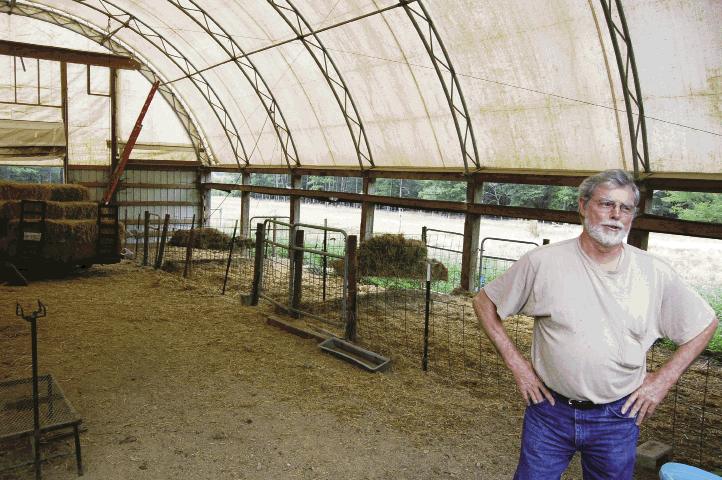
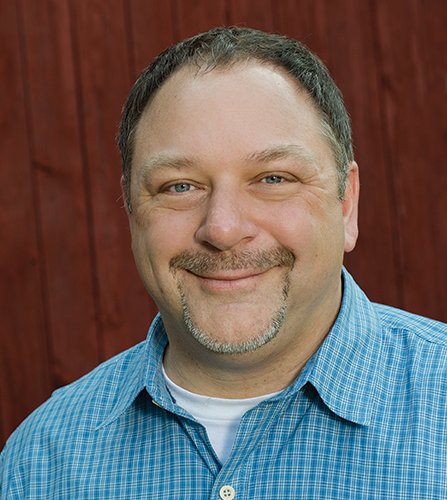



Post a comment
Report Abusive Comment